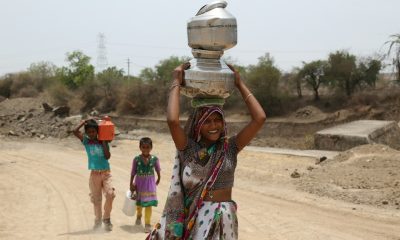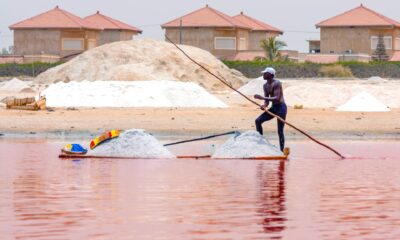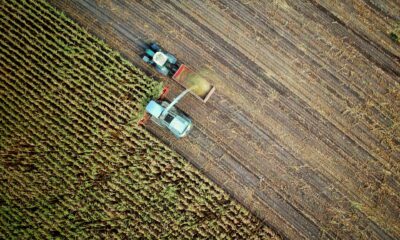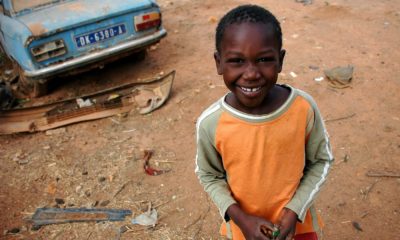Africa
West Africa’s Debt Crossroads: Risks Rise, Opportunities Beckon
Senegal faces soaring debt exceeding 105% of GDP, prompting investor attention and tough policy choices. Côte d’Ivoire enjoys strong growth but faces electoral uncertainty. Gabon shows reform signs post-Bongo, yet lacks debt clarity. Cameroon remains fiscally solid, though leadership succession looms. Across the region, risks persist, but frontier debt markets offer notable long-term investment potential.
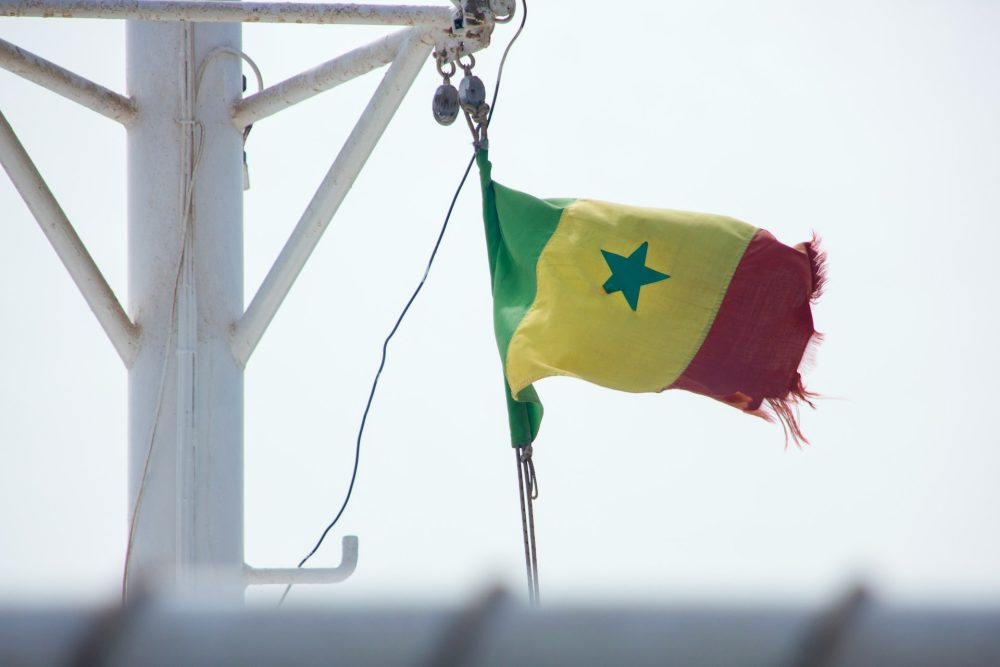
Senegal is arguably the most troubled country in Africa. Recent disclosures of hidden debt have added 25 percentage points to the debt-to-GDP ratio, pushing the estimate to over 105% by the end of 2024.
The situation is fragile: few countries have historically managed to reduce debt of this magnitude without resorting to external or domestic debt restructuring. Crucial decisions are now on the horizon. It is no surprise, then, that investor interest in Senegal has increased.
Africa’s frontier markets face mounting debt challenges, political uncertainty, and reform pressures—but also offer compelling investment opportunities
As a Finance Ministry official said: “We have seen more investors pass through Dakar in the first two months of 2025 than in all of 2024.” The ruling party, PASTEF, came to power on a populist platform. However, measures such as eliminating fuel subsidies and reducing capital expenditures – which are necessary to secure multilateral financing – are likely to be deeply unpopular with voters.
Nonetheless, we believe the leadership will be able to manage the potential backlash and make the tough decisions required to maintain the support of the International Monetary Fund (IMF) and other multilateral institutions. At least for now.
Senegal should be able to get through the next 6-12 months with support from the IMF, the World Bank, and through expensive bridge financing. However, without spending restraint or a fast enough increase in revenues, the country risks stagnation in 2026.
After the chaos of Dakar, it was a relief to move to the quieter – if wetter – Abidjan, the economic capital of Ivory Coast. It is no exaggeration to say that the country is experiencing real prosperity: real GDP growth consistently exceeds 6%, driven by offshore oil production, the discovery of major gold deposits and a construction boom linked to last year’s Africa Cup of Nations.
Elections in Africa are rarely quiet affairs, and Côte d’Ivoire is no exception. The incumbent president, Alassane Ouattara, is considering running for a controversial fourth term. Despite a history of two civil wars in the past 25 years, there is widespread concern about avoiding further unrest, and there is no radical opposition with the strength to assert itself.
If he decides to run, Ouattara would have a good chance of winning a fourth term. Institutional control mechanisms should help limit excessive campaign spending. We will carefully evaluate any pre-election market weakness to increase our exposure.
From Abidjan we moved to Central Africa, to Gabon. After more than fifty years of rule by the same family, things finally seem to be changing with the removal of former President Ali Bongo. Governance reforms will take time, but positive developments are underway: we have gathered indications that relationships with commercial, bilateral and multilateral financiers are improving.
However, the amount of outstanding debt remains a major unknown. No one knows the exact figure, and the debt has increased as the transitional government’s infrastructure projects, especially around Libreville, have progressed. Meanwhile, oil production is declining due to natural causes.
One potential source of growth is manganese: Gabon has the world’s second-largest reserves, but has not yet developed the infrastructure needed for exports. The government is therefore looking for investments to improve the railway network. Progress in this direction could push the yield on credit – currently around 12% – down to single digits.
After the presidential election in early April, the government may commit to curbing spending and reducing debt arrears. However, investment will remain difficult until more transparency is achieved in fiscal data.
The last stop was in Yaoundé, Cameroon. The government has finally decided to hire a consultant to assess the economic sustainability of the Sonara refinery, the main cause of the country’s backlog of domestic debt. Cameroonian banks hold 90% of the refinery’s capital, and its restructuring would allow the government to access new forms of financing, while also injecting liquidity into the domestic market.
Soon, a Eurobond issue will help pay off the domestic debt arrears. According to ministerial sources, there are no arrears on the external debt front. Conversations with political analysts clearly revealed concern for the future of the country, now peaceful, but marked by the advanced age of President Biya, 92, and uncertainty over his succession.
Cameroon’s fiscal position is solid, its external balance is positive, and its debt level remains manageable. However, political succession remains an unknown. As one local journalist told us: “When you think you understand Cameroon’s politics, you don’t understand anything at all.” For now, we can only wait and see how things unfold.
__
(Featured image by Victor Rutka via Unsplash)
DISCLAIMER: This article was written by a third party contributor and does not reflect the opinion of Born2Invest, its management, staff or its associates. Please review our disclaimer for more information.
This article may include forward-looking statements. These forward-looking statements generally are identified by the words “believe,” “project,” “estimate,” “become,” “plan,” “will,” and similar expressions. These forward-looking statements involve known and unknown risks as well as uncertainties, including those discussed in the following cautionary statements and elsewhere in this article and on this site. Although the Company may believe that its expectations are based on reasonable assumptions, the actual results that the Company may achieve may differ materially from any forward-looking statements, which reflect the opinions of the management of the Company only as of the date hereof. Additionally, please make sure to read these important disclosures.
First published in ESG NEWS. A third-party contributor translated and adapted the article from the original. In case of discrepancy, the original will prevail.
Although we made reasonable efforts to provide accurate translations, some parts may be incorrect. Born2Invest assumes no responsibility for errors, omissions or ambiguities in the translations provided on this website. Any person or entity relying on translated content does so at their own risk. Born2Invest is not responsible for losses caused by such reliance on the accuracy or reliability of translated information. If you wish to report an error or inaccuracy in the translation, we encourage you to contact us

-

 Business1 week ago
Business1 week agoDow Jones Near Record Highs Amid Bullish Momentum and Bearish Long-Term Fears
-

 Crowdfunding7 days ago
Crowdfunding7 days agoThe Youth Program at Enzian Shooting Club Is Expanding Thanks to Crowdfunding
-

 Impact Investing2 weeks ago
Impact Investing2 weeks agoEU Backs 90% Emissions Cut by 2040 and Delays ETS2 Rollout
-

 Crypto3 days ago
Crypto3 days agoTariff Turmoil Sends Bitcoin and Ethereum Lower as Crypto Markets Face Mounting Pressure
